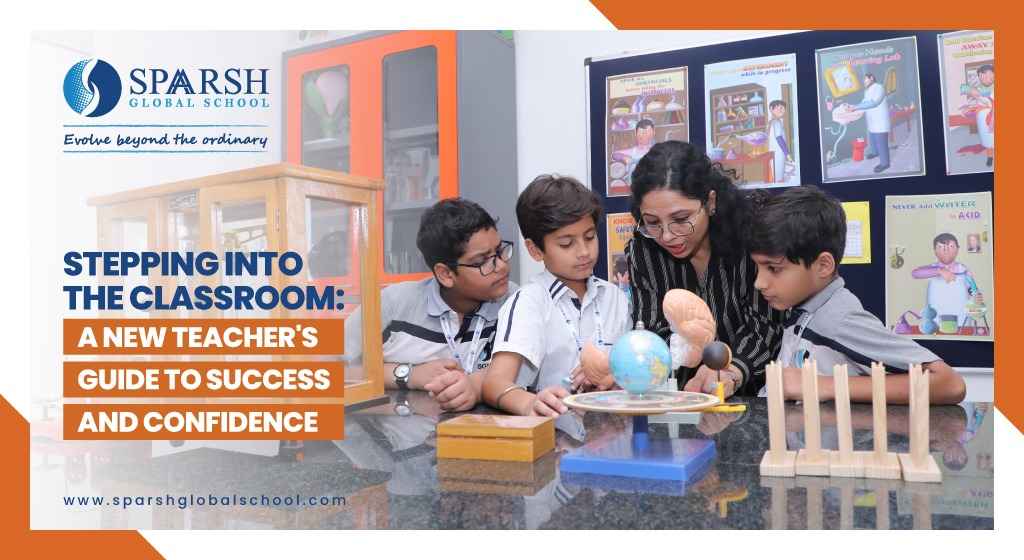Entering the teaching profession is both exhilarating and daunting. Entering a classroom for a new teacher symbolises the pinnacle of many years of training, studying and visioning. Nonetheless, the first days, weeks and even months of the teaching and learning process can be very overwhelming as they grapple with issues of lesson planning, classroom management and how to engage their learners. Here’s a comprehensive guide to help new teachers find their bearings and portray confidence as they embark on this noble profession.

1. Preparation is Key
Indeed, success does not start on the first day of school. A prepared teacher is a confident teacher. First, one should learn about the school curriculum, rules and regulations and guidelines for student conduct. Review the syllabi for the subjects and design respective lessons that are fun, dynamic and flexible. Always ensure that you organise the learning space to encourage group learning and to result in an environment that is friendly for all students. The capacity to alter course as needed, is a sign of an excellent educator.
2. Build Relationships Early
Good relation with students, staff and parents is key to a successful teaching career. Make time to remember the names as well as some of the interests of the students that you have in your class and their ways of learning. Start on common ground that will enable you to build confidence with the subject. It is important to consult with other teachers to ensure one gets an idea of what works for them. Taking some time to communicate with parents or guardians can help in understanding the background of each student enabling you to tailor your approach.
3. Set Clear Expectations
From the very beginning, set clear and consistent expectations for behaviour and academic performance. Clearly articulate classroom rules and consequences, ensuring they are fair and age-appropriate. Involve students in creating these guidelines to foster a sense of ownership. Consistency in enforcing rules helps maintain a positive and respectful classroom atmosphere, which is crucial for effective teaching and learning.
4. Embrace Technology
In today’s digital age, technology is a powerful ally for educators. Use digital tools and platforms to enhance lesson delivery, engage students and streamline administrative tasks. Interactive apps, virtual simulations and online resources can make learning more dynamic and accessible. Additionally, staying updated with educational technology trends ensures you remain relevant and effective in meeting the needs of modern learners.
5. Stay Organised
Teaching involves juggling multiple responsibilities, from lesson planning and grading to extracurricular activities and parent-teacher meetings. Maintaining a structured schedule and using tools like planners or digital calendars can help manage time effectively. Organise teaching materials and resources to reduce stress and improve efficiency. A well-organised teacher not only saves time but also inspires confidence in students.
6. Foster a Growth Mindset
New teachers should approach their roles with a growth mindset, understanding that challenges are opportunities for learning and improvement. Mistakes are inevitable, but they’re also valuable teaching moments. Reflect on what works and what doesn’t, seek feedback from peers and mentors and continuously strive to refine your craft. Professional development workshops and online courses can further enhance your skills and knowledge.
7. Prioritise Self-Care
Teaching is a demanding profession and it’s easy to become consumed by its responsibilities. However, neglecting self-care can lead to burnout. Make time for activities that rejuvenate your mind and body, whether it’s exercise, reading or spending time with loved ones. Practising mindfulness and setting boundaries ensure that you maintain the energy and enthusiasm needed to inspire your students.
8. Celebrate Small Wins
Every achievement, no matter how small, deserves celebration. A student mastering a difficult concept, a breakthrough moment during a lesson, or positive feedback from a parent are all milestones worth acknowledging. Recognising these successes boosts your morale and reinforces your sense of purpose as an educator.
Conclusion
Becoming a teacher is a journey of continuous learning and growth. By staying prepared, building relationships and maintaining a positive mindset, new teachers can overcome challenges and thrive in their roles. It is essential to remember that teaching is as much about inspiring students as it is about personal development.
Institutions like Sparsh Global School emphasise nurturing confident and compassionate educators who shape the leaders of tomorrow. For new teachers, stepping into the classroom at Sparsh Global School is not just a career milestone but a transformative experience that reaffirms their committment to education.
FAQ
1. How can new teachers handle challenges in the classroom confidently?
Adopting a growth mindset is key. Reflect on mistakes as learning opportunities, seek feedback from mentors and continuously improve through professional development. Preparation and flexibility are also critical for navigating challenges.




